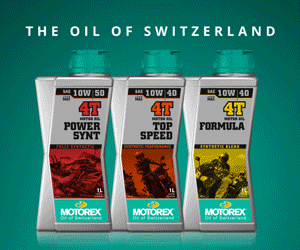Issue 1: ‘Conflict of Interest’ in decision-making is widespread.
- Experience shows that good “whole of sport” decision-making is not common when conflicts of interest exist.
- A Board that feels truly independent, is appropriately authorised and properly funded to act will not be hampered by those conflicts of interest and will dramatically improve decision-making.
- The MA Board should be chosen by a Selection or Nominations Panel appointed by the Council (effectively the sports shareholders), supported by both the Council and Board and voted on as a whole. The calibre of person required to provide the necessary credibility will require a selection methodology of this nature. This will require a constitutional change.
Issue 2: The Council are currently making or significantly influencing too many day to day decisions which cuts across the independence of the Board and confuses staff. There is currently no trust between the Board and the Council and vice versa.
- This relationship should be improved when the recommended selection process is implemented and an independent appropriately skilled Board is in place. MA must clearly delineate which body does what, but particularly, specify the restricted role the ‘conflicted’ Council should play.
- The current culture whereby SCBs can adopt a ‘take it or leave it’ approach in regard to Board decisions (or CEO directives) is not sustainable, is confusing, will lead to a disjointed market interaction and can’t be tolerated in a professional organisation. A requirement that ensures that fulfilment of all Board policies and Chief Executive directives is required either by: Introduction of a License Agreement, or A change in constitutional directive
Issue 3: Currently the State Associations (or SCBs) do not see MA Head Office as a positive contributor and a vital, essential part of MA State operations.
- The MA Board and administration are working from a very low funding base provided as ‘handouts’ from the States and are therefore not able to employ the people needed to turn this situation around. Whilst this lack of service is frustrating for the Council and State Associations, (and incidentally, frustrating to the MA Board as well) the current financial model does not give MA the wherewithal to operate effectively.
- A new “break the mould” funding model must be implemented to correct this situation. Our recommendation is that in the future MA issues all rider licences and consequently, receives all this funding. Based on an agreed distribution model, MA would then retain an agreed amount (or percentage) of this income to operate the national body and finance national programs.
- This would then enable MA to properly resource a commercial/marketing department, which in turn would ultimately generate additional income for distribution, but would also provide much needed economies for the SCBs from centralising licensing operations.
- Additional funding would also be provided to State Associations by MA for a number of national programs.
Issue 4: The MA Chief Executive (new title) has minimal control, influence or power over the State CEOs.
- Coordinating national initiatives (e.g. National Database) and bringing about time efficient results is virtually impossible under the current arrangements. Central direction and control is urgently required. The current situation can only be averted by the introduction of a ‘Licensing Agreement’ and associated ‘Membership/Alliance Principles’. One alternate suggested solution was for all staff to be employed by MA, but a Licensing Agreement would render this unnecessary.
This agreement should stipulate the following:
- MA and each State Association constitute in effect a single organisation with common objectives
- Each State Association needs to adhere to the national strategic plan (once finalised)
- Establish rights for MA to impose rules and penalties if this does not occur
- Define and protect the use of all Intellectual Property (IP) – logos
- Outline the new MA ‘Funding Model’ and the annual distribution of funds
Issue 5: There is much duplication in the various operating systems.
- Some of these operations should be centralised to MA Head Office to improve efficiency and reduce the State’s cost structure e.g. Licensing
- MA marketing, sponsorship and promotion needs to be driven by MA head office
- Implementation of the national database is critical, particularly in relation to licensing, revenue collection and access to members
- MA needs to develop and then manage the national Officials Training Framework (or package)
- MA needs to drive and support the technical and regulatory aspects of the sport
- MA needs to develop an enhanced method of allocating and managing national events so that the process is seen as transparent and equitable
- All member insurance should be under the one banner to bring about cost savings
This review has detected a good deal of optimism and enthusiasm from all stakeholders for the much needed reform agenda. A ‘One Organisation’ approach is desperately needed and all participants have expressed strong support for the development of a national ‘Brand’ for the sport. The ‘Case for Change’ is quite clear. However, rather than move immediately to a ‘one company’ legal entity we believe the Licensing Agreement model will provide the necessary discipline within the system until members grow confident with the new regime.
On this basis the following ‘Imperatives’ or things that MUST be achieved to ensure the future growth of Motorcycling Australia are:
- A governance structure that aligns itself closely with the Australian Sports Commission (ASC) ‘Mandatory Sports Governance Principles’ and provides a single, cohesive national entity for all disciplines of the sport – from juniors through to high performance.
- A governance and management structure where there are no conflicts of interest and where parochial views are not sought or condoned.
- A Board that possesses the authority and skills it needs to drive the reform agenda (including implementation of the WoSR recommendations) and the means to take appropriate action should their efforts be impeded and/or ignored.
- Professional, dynamic leadership and management from the MA Board and head office, with a strong focus on innovation and business development.
- A clear, simple but over-arching national strategic plan that has been endorsed by all the State Associations (and incorporates their input) and one that will take a very aggressive approach to achieving immediate business growth.
- ‘One Brand’ – a consistent national brand that will enable the organisation to engage in a number of beneficial commercial and corporate partnerships that will provide alternative income streams.
- Decreased duplication of effort across the country to achieve significant administrative cost savings and the generation of additional funds for national programs and new initiatives. For example:
Centralise membership/licensing operations at MA’s head office
Finalise the rollout of the national database (now underway)
A centralised merchandising program - Better communication, consultation and real engagement with all stakeholders, including riders that are not currently members of MA affiliated clubs and all recreational riders.
- Instill confidence in members that the MA insurance scheme is the best available to adequately cover all members and is considered ‘value for money’ when compared to other products in the marketplace. Incorporate ‘Income Protection’ cover for sole traders seeking protection.
- Development of a suite of new national programs that can be rolled out when MA head office staff resources have been bolstered.
- And finally, get the ‘fun factor’ back into the sport: ‘fun for riders – fun for the parents – fun for the officials – and fun for the spectators’. People originally got involved in the sport for these reasons and this concept needs to be restored, revived and actively promoted!
The future for motorcycling in this country is very bright. MA and the various State Associations must become ‘enablers’ and work hard together on eliminating the numerous impediments to participation. There must be a strong focus on MA’s clubs, as they are the basic reason why the organisation exits! Rules need to be much more ‘user friendly’ and obtaining (and retaining) a licence needs to be simplified so that potential participants don’t resort to riding in the bush. MA also needs to encourage research into the economic and health benefits of participation in the sport so that it can advocate to all levels of government with an informed voice.
And finally, all stakeholders need to understand that they are part of the entertainment industry and as such, their job is to entertain people and provide opportunities for them to participate responsibly and at a reasonable price.
Following is an at a glance summary of the 12 major ‘Issues’ identified during the WoSR and the 22 ‘Recommendations’ that we believe will ensure an upward trajectory for the sport once they are implemented.
Go the next page for ‘Motorcycling Australia – The Situation in a nut shell‘























